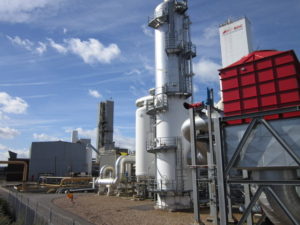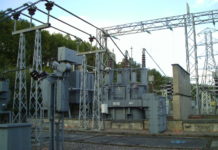
Intensive energy industries have welcomed the government’s promise to protect them from power policy costs, but have called for clarity on direction of travel to avoid an investment hiatus.
While Lord Deben last week played down the impact of climate change policies on the steel industry, Chris Webb, head of energy management across Europe, Middle East and Africa at Linde Gas, urged government to signal its intent to avoid further damage to related UK heavy industries.
The UK has become the most expensive place in Europe to do business for energy intensive firms in terms of power costs, Webb told delegates at the Energy Live News conference.
“Our biggest concern is the cost of electricity,” said Webb. “The [European Commission’s] Eurostat numbers for the first six months of this year [show] that the UK is the most expensive place to conduct an electrically intensive manufacturing activity. That is a big concern for our customers in this industry.”
Webb was “heartened” by the prime minister’s recent pledge to reduce the burden on intensive industries by refunding energy policy costs as soon as receiving EU state aid clearance.
But he said it had been a long time coming.
“It is a message we have been trying to get through for a number of years. Ultimately, if we are going to build wind turbines, that requires steel. If they are not to float off into the North Sea, we will need concrete.”
As the foundation for many other manufacturing industries, Webb said such industries needed protection “sooner rather than later.”
Demand side response
While National Grid is attempting to rapidly scale demand side response, Webb agreed that many large industrial firms are unable to become flexible overnight.
“[Demand side response] is an opportunity, but you can only play the hand you have been dealt,” said Webb.
“If you have a batch process, the opportunities are enormous. If you have a plant that is designed for flat running, or a continuous process that you can’t interrupt, then you have much less opportunity.”
Webb said that multinational companies could decide to spend higher amounts of capital on more flexible but less efficient plants if there was a clear signal that such plant would be rewarded in the longer term.
“If you are going to build in the UK, then you have to bear in mind that the delivered price is 50% higher than most of the rest of Europe,” said Webb. “So although Grid may be seeking more industrial contribution to the [balancing] process, finance directors tend to ask questions about what the additional capital expenditure buys in terms of operational expenditure saving.
“Because we can’t see the market in the future, that is a relatively hard sell.”
Related stories:
Energy intensive users ‘to be refunded energy policy costs’, says Cameron
Free download: Demand side response report 2015
National Grid says no blackouts, just business as usual following supply crunch
SSE brings 735MW gas plant back online for winter
Winter is coming, says Nat Grid; Flexitricity warns demand response cannot be rushed
Smart grids ‘require local control and businesses must play or pay’
National Grid plots superfast grid balancing service
National Grid moots demand side response rule changes as winter power margins tighten
National Grid flags demand response changes, urges suppliers and TPIs to deliver
National Grid must simplify demand response to bring in UK businesses
National Grid launches major demand side push
Follow us at @EnergystMedia. For regular bulletins, sign up for the free newsletter.



